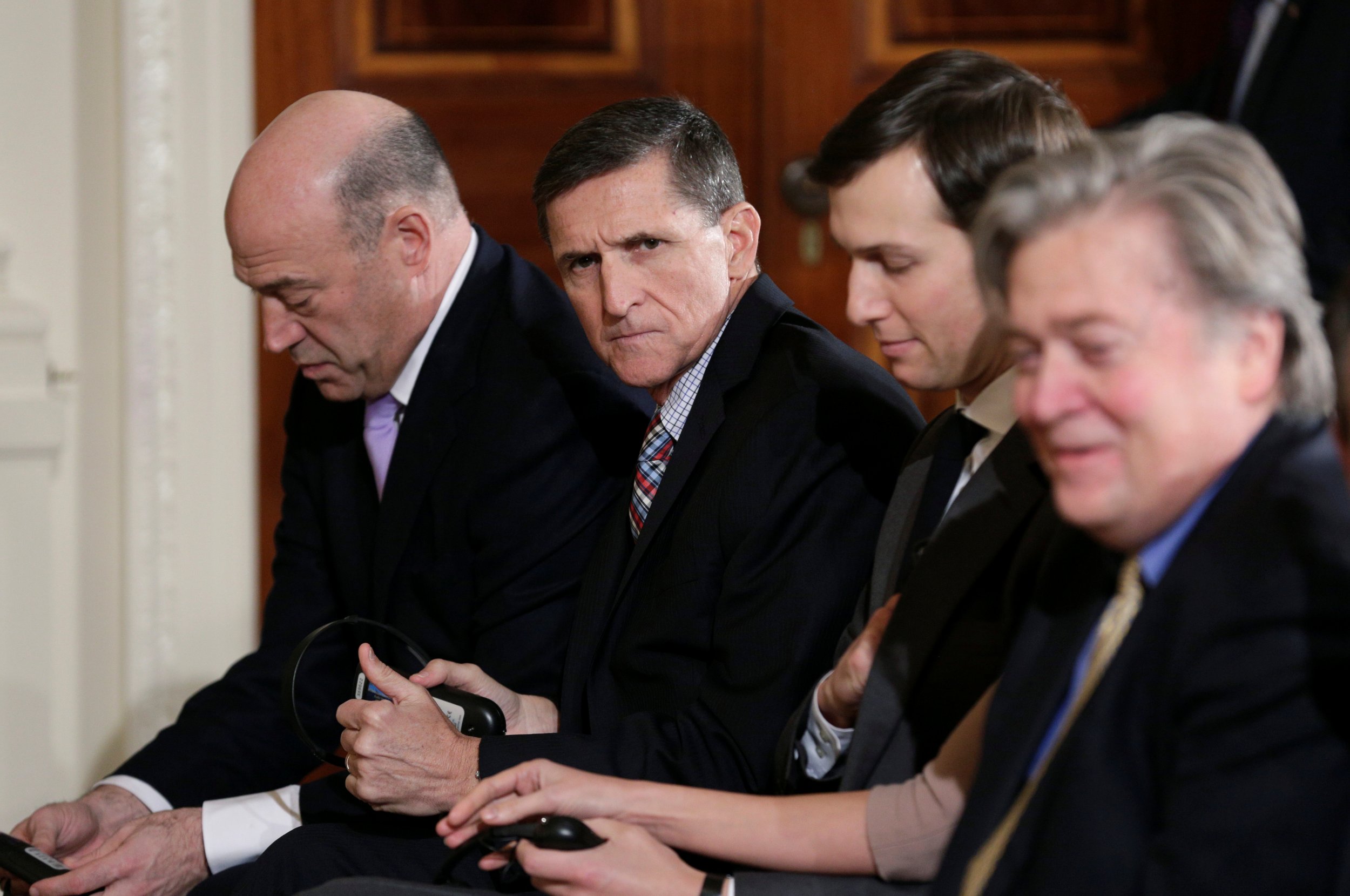
This article first appeared on the American Enterprise Institute site.
Donald Trump's first act was as real-estate developer who loved leverage. Big time.
Recall his CNBC interview last spring where he called himself "the king of debt" and gushed about how he "loved playing" with debt.
Right about the same time, Trump weighed in on monetary policy: "Right now I am for low interest rates, and I think we keep them low." Call that the prime-the-pump, Keynesian Trump.
But there's another version of Trump. It's one more in tune with the modern GOP; certainly its hard-money, supply-side wing. As he told GQ in 2015: "Bringing back the gold standard would be very hard to do, but boy would it be wonderful. We'd have a standard on which to base our money."
When Trump was president, the dollar would be king. Oh, and the "highly political" Fed boss Janet Yellen probably would no longer be at the Fed, inflating the "false economy."
Not surprisingly, gold bugs were very excited by that riff, much like they were when Reagan was elected and hopes for a return to a gold standard surged.
So, too, the Ron/Rand Paul libertarian wing of the GOP. Not only are there plenty of gold groupies in that clique, but also lots of debt worriers. And they probably really loved it when Trump promised to eliminate the US national debt in just eight years.
Related: Robert Reich: What the Kushner/ Bannon Brawl Is All About
So which Trump is sitting in the Oval Office? This one:
President Donald Trump said Wednesday the U.S. dollar "is getting too strong" and he would prefer the Federal Reserve keep interest rates low. Mr. Trump, in an interview with The Wall Street Journal, also said his administration won't label China a currency manipulator in a report due this week.
He left open the possibility of re-nominating Federal Reserve Chairwoman Janet Yellen once her tenure is up next year, a shift from his position during the campaign that he would "most likely" not appoint her to another term. "I do like a low-interest rate policy, I must be honest with you," Mr. Trump said at the White House, when asked about Ms. Yellen.
Oh, and White House budget director Mick Mulvaney now says Trump's promise to pay off the national debt was "hyperbole." One more thing; Trump is now for the Ex-Im bank.
What to make of all of this? What instincts and ideas are really driving Trumponomics?
Perhaps a combo of the influence of Trump's formative professional years (blasé about debt, love of low rates) and the educating influence of experts, specifically the CEOs whose company he's comfortable with. It's big business, after all, that really supports the Ex-Im and is worried about a China trade war.
It's especially notable that Trump was educable on the China currency issue. Maybe we've gone from "President Bannon" to "Prime Minister Cohn," as this Politico piece suggests:
In private conversations, a number of Trump's friends have told him he could be more popular — and accomplish more — if he embraced a moderate streak and listened to his business friends.
Jared Kushner, the president's son-in-law, is trying to orchestrate more power for New York business types, particularly National Economic Council Director Gary Cohn, while diminishing the power of chief strategist Steve Bannon, who drives the populist wing of the White House.
Some big questions remain: How does this moderate pro-business pragmatism play out on issues such as trade, financial reform (both Dodd Frank and Glass Steagall), tax reform and Obamacare — especially when dealing with Congress?
Related: John Dean: The Divide at the Heart of the White House Spells Disaster
Conservative Republicans may have very different views on these issues than banking and private equity CEOs. For instance: The latter might think a VAT or carbon tax is a great way to pay for a big corporate tax cut, the former not so much.
One can also imagine CEOism having a very different take on entitlement reform (the suits would be for it) vs. Trump's populism (he promised to leave Medicare and Social Security alone.)
James Pethokoukis is a columnist and blogger at the American Enterprise Institute.
Uncommon Knowledge
Newsweek is committed to challenging conventional wisdom and finding connections in the search for common ground.
Newsweek is committed to challenging conventional wisdom and finding connections in the search for common ground.
About the writer
To read how Newsweek uses AI as a newsroom tool, Click here.








